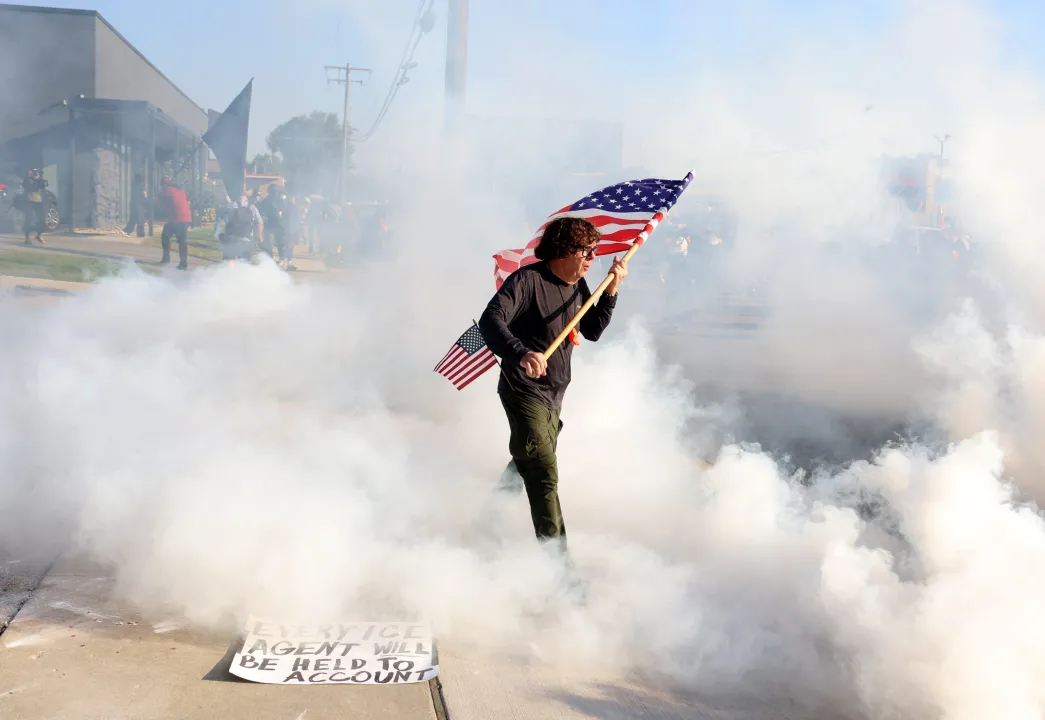I was sitting with a client recently, who identifies as an "empath." She described what it’s like to walk into a room. She described feeling the emotions of others around her, noticing slight changes, and feeling upset when others are upset. This is something I often hear among people who have survived interpersonal trauma, especially childhood abuse.
She's caring, deeply attuned to others, and shows up for people generously and openly. But also... she is always aware of potential conflict, micro-shifts in expressions, or signs of anger and hurt around her. And that can also be social hypervigilance.
Empath or Social Hypervigilance (Spoiler: It Can Be Both)
When people think about hypervigilance, many identify things like a combat Veteran clocking the exits, sitting with their back to the wall, and noticing anyone who comes and goes from a room. But hypervigilance can center on anything we've learned to fear. And if the thing you've learned to fear is conflict or violence, you can learn to watch, monitor, and even fear negative emotions in other people.
We don’t usually learn such specific, energy-consuming patterns like this unless some part of us thinks they serve a purpose. Typically a part of us feels it is keeping us safe, giving us an early warning, helping us navigate dangerous or unpredictable situations, or protecting others we care about.
In other words, for some of us being an "empath" is at least in part a trauma response. A learned behavior to try to keep us or those we care about safe.

For much of my life, I could pick up on the subtlest cues: a flicker of tension in someone's jaw, the way their tone shifted in a conversation, or ways their body language showed defensiveness or rising aggression. I remember how I would hear people from my reading nook, and how I could tell from how someone was breathing or walking in the home whether or not they were angry and looking for someone to take it out on.
I wasn't equally tuned into all emotions. I was specifically on the lookout for danger or conflict. If you've grown up in chaotic, abusive, neglectful, unsafe, or oppressive environments, this skill is a survival one. You learn to detect weather and pressure changes before the storm hits. And even after you leave those environments, you may notice yourself continuing to scan, become defensive or anxious, or feel the intensity and exhaustion of monitoring for emotions around you even in safe settings.
This doesn't mean you aren't empathetic. You can be both deeply empathetic towards others, and also in a continuous threat-detection mode for the sake of yourself and others. This pattern can be tiring. Instead of being fully present, your mind may be catching different signs around you, watching for trouble.
Self-Check: Are You in Threat Detection Mode?
- Do you often find yourself trying to care for others emotions, apologize even if something wasn't your fault, or try to soften and smooth conversations and interactions so people hopefully won't become angry or offended?
- Do you feel responsible for calming tension before it escalates to conflict?
- Do you find it hard to relax in social situations?
- Do you repeat or rephrase things in fear of being misunderstood?
- Do you often give backstory, justification, or qualifications (e.g., this is just my opinion but...)?
If several of these sound like you, it may be helpful for you to consider what a part of you is trying to prevent or protect yourself from. Is there a specific thing you fear will happen if someone becomes upset?
Also, Our Defenses Are Often Layered.
Over-Explaining
Another habit I often see in socially hypervigilant and empathic folks is over-explaining. Some of us learn that if we miscommunicate or are misunderstood, the consequences can be severe. Perhaps we fear judgement or rejection. We may also fear explosive anger or not being allowed a chance to correct miscommunications if something isn't said just right the first time.
Hypervigilance in social conversations can show up as repeating the same point three different ways, stacking disclaimers on top, and over-clarifying or assuring others in order to feel safe stating a point. I often see these people who work in oppressive or unsafe work environments, people who often experience discrimination or unfair accusations in society, and people who have been bullied or harassed learn these patterns too.
People Pleasing
People pleasing and "fawn" responses to stress and trauma can mean attempting to appease others, agree with others, and set your own needs aside to avoid conflict. Do you agree with people to keep the peace or go along with things to make others happy at your own expense? Do you hold back from expressing anger, disagreement, or dissent at times to prevent someone from becoming upset with you or disliking you? Do you feel guilty or anxious if someone is unhappy with you? Some of us learn to people please as part of our defense against being hurt or rejected.
Although this may feel like "keeping the peace" rather than self-erasure, you are attempting to shrink yourself or neglect your needs in the hopes of avoiding conflict. Really, we can't control others' behaviors. Shrinking and neglecting ourselves only leaves us feeling resentful and taken for granted over time.

Perfectionism
Perfectionism is another common defense. Some of us think if we can only be beyond reproach - edited, timely, flawless work for instance - maybe no one will find a reason to hurt us, reject us, criticize us, or harm us. The sad thing is that so often what we are reaching for isn't the gold stars for our work, so much as peace and protection. And perfectionism gives us neither in the long run.
Avoidance
This is where the "flight" and "freeze" responses can come in. If you are monitoring others emotions or feel you have to act as a sort of peacekeeper, that can be tiring. As such, some folks will begin isolating more, making excuses and declining invitations out. It can also lead to avoidance of your own emotions. If you are using energy to monitor the emotions of others, feel possible tension around you as if it's in your own body, and maintain that vigilance mode, there can be limited energy or mental resources leftover to care for your own emotions and needs. You may avoid your own internal world to focus on others and carry forward patterns of abuse or neglect you've experienced - but towards yourself.
Reactivity
And lastly, some folks will have the fight response show up. Empathy is lovely, connecting, and healthy. Social hypervigilance, though, can leave us feeling on edge. If you are so attuned to tension around you that it feels like it's echoing in your own body, that can lead you to react more intensely, have heightened emotional responses yourself, or even lash out in defense of yourself or others.
Why This Matters
Identifying as an empath can be empowering and help you understand why you notice and care so deeply. But if your empathy is fueled by hypervigilance, it may also keep you in a constant state of alert, which is exhausting for your mind and body.
Naming that possible trauma learning doesn't detract from your ability to have empathy. It allows you to also have empathy for yourself. This could mean learning how to be present without patrolling, connected instead of constantly on guard, and empathetic without exhausting yourself.
A Gentle Reframe to Consider
Your ability to notice is real. Your care is real.
And you also deserve to feel safe enough to set rest sometimes. Your mind and nervous system wired to protect you and others. And you can still teach yourself new ways to feel genuinely safe and connected.




